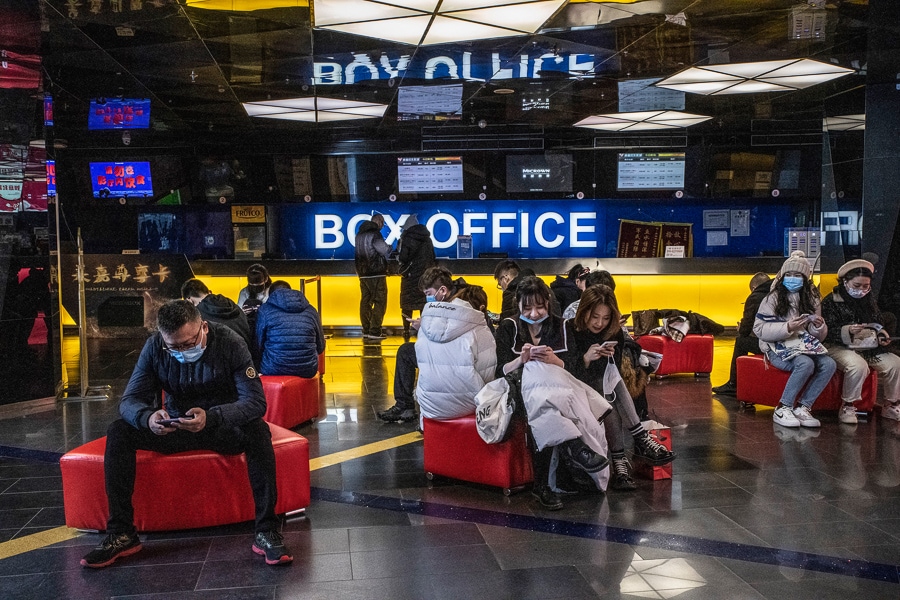
A bored China propels box office sales to a record
China's booming box office returns offered a promising sign for the global film industry, which has seen movie theaters decimated by the pandemic and has been racked with concerns about the future of moviegoing
 Moviegoers wait for their films to start at a movie theater in Beijing, Feb. 15, 2021. Hundreds of millions of people are stuck in cities around China during this Lunar New Year holiday, as coronavirus restrictions put a halt to a travel season that is usually the world’s largest annual migration — instead, they are going to the movies.
Moviegoers wait for their films to start at a movie theater in Beijing, Feb. 15, 2021. Hundreds of millions of people are stuck in cities around China during this Lunar New Year holiday, as coronavirus restrictions put a halt to a travel season that is usually the world’s largest annual migration — instead, they are going to the movies.
Image: Gilles Sabrié/The New York Times
Hundreds of millions of people are stuck in cities around China during this Lunar New Year holiday, as coronavirus restrictions put a halt to a travel season that is usually the world’s largest annual migration. Instead, they are going to the movies — and powering a blowout resurgence at the box office.
“Detective Chinatown 3,” the latest installment in a long-running buddy cop series, raked in an estimated $397 million over three days, according to Maoyan, which tracks ticket sales in the country. That set a world record for the largest opening weekend in a single market. The previous record-holder, “Avengers: Endgame,” took in $357 million in its weekend opening in the United States and Canada in 2019.
The strong showing was a forceful reminder of the power of the Chinese consumer. While the Chinese economy has come roaring back as the country has largely tamed the coronavirus, shoppers and moviegoers have been slower to open their wallets.
Now, people like Sophia Jiang are ready to spend, even on a movie that has received tepid reviews.
Over the Lunar New Year holiday, Jiang, a 40-year-old freelance writer, would typically go with her parents to their hometown in the northern province of Jilin. But authorities imposed restrictions on visits to ancestral homes this year to stem any coronavirus outbreaks. Photos circulating on Chinese social media showed eerily empty railway cars at a time when travelers are usually packed shoulder to shoulder.
©2019 New York Times News Service




